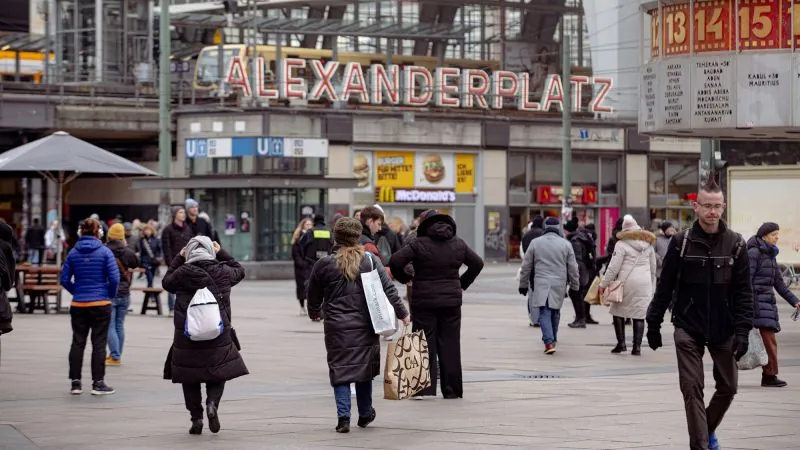
Germany's Economic Troubles Deepen: A Second Year of Contraction
2025-01-15
Author: Jessica Wong
Germany, the powerhouse of Europe, is grappling with significant economic challenges as it was reported that the country’s economy shrank for the second consecutive year in 2024. Official data reveals a 0.2% decline in the nation’s gross domestic product (GDP) for last year, following a 0.3% contraction in 2023. This disturbing trend marks the first time since the early 2000s that Germany has experienced back-to-back annual economic decline, a period that was marked by soaring unemployment and financial instability.
The troubling new figures emerge just weeks before a pivotal snap election — one that was necessitated by the collapse of the governing coalition in late 2023 over disagreements regarding how to revitalize Germany's sluggish economy. Economists are urging that the incoming government should craft a robust, long-term economic reform plan to steer the country back on track.
A grim manifestation of these economic struggles can be seen in the ongoing crisis at Volkswagen, Germany’s largest manufacturer. In December, the automotive giant revealed drastic operational changes, including the elimination of over 35,000 jobs and the relocation of some production facilities to Mexico. This is emblematic of larger issues in the country, where businesses are already facing high labor costs, lackluster productivity growth, and intensifying competition from China.
Chinese enterprises are becoming increasingly self-sufficient, diminishing the demand for German exports that once fueled much of the nation's economic growth. According to Carsten Brzeski, the global head of macroeconomics at pan-European bank ING, German industrial production remains approximately 10% below pre-pandemic levels. Additionally, looming higher tariffs from the potential new U.S. administration could exacerbate these difficulties by affecting German exports and displacing investments as companies contemplate relocating production to the U.S.
The outlook from Germany's central bank is equally somber, predicting that economic stagnation will persist through this year, with only a slight improvement expected in 2025. This stagnation is alarming as it sets a negative precedent for the entire European Union, which has also been struggling for robust post-pandemic growth while potentially facing a more challenging relationship with the U.S., one of its principal trading partners.
The European Union’s statistics agency recently showed a minor uptick in industrial production among the 20 euro-using countries in comparison to October, but it remains 9% lower than it was seven years ago. This lackluster performance is partly attributed to persistently high energy prices fueled by Russia’s ongoing conflict in Ukraine.
Looking ahead, economists warn that Germany's automotive sector faces enduring structural challenges, which will likely weigh down broader industrial production across the eurozone for the foreseeable future. As the nation prepares for its imminent political changes, all eyes will be on the new government to see if they can enact effective policies to reverse this troubling economic decline.


 Brasil (PT)
Brasil (PT)
 Canada (EN)
Canada (EN)
 Chile (ES)
Chile (ES)
 Česko (CS)
Česko (CS)
 대한민국 (KO)
대한민국 (KO)
 España (ES)
España (ES)
 France (FR)
France (FR)
 Hong Kong (EN)
Hong Kong (EN)
 Italia (IT)
Italia (IT)
 日本 (JA)
日本 (JA)
 Magyarország (HU)
Magyarország (HU)
 Norge (NO)
Norge (NO)
 Polska (PL)
Polska (PL)
 Schweiz (DE)
Schweiz (DE)
 Singapore (EN)
Singapore (EN)
 Sverige (SV)
Sverige (SV)
 Suomi (FI)
Suomi (FI)
 Türkiye (TR)
Türkiye (TR)
 الإمارات العربية المتحدة (AR)
الإمارات العربية المتحدة (AR)